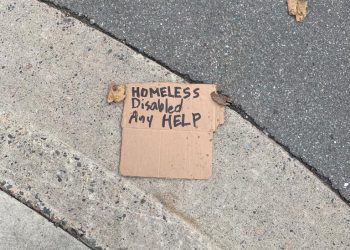New Brunswick’s housing crisis, which has left thousands of individuals and families without adequate and safe housing, has led the provincial government to make a four-year $102.2 million investment in public housing–$100 million will be allocated to building and $200,000 to renovating. This is a step in the right direction. Nevertheless, this measure cannot resolve the housing crisis without a comprehensive investment plan that outlines how, where, and when these units will be built. Moreover, policy changes should prioritize tenants’ protections and ensure the preservation of the affordable housing stock in the province.
First public housing investment in New Brunswick in 38 years
On October 17, the provincial government announced that it will spend $102.2 million of the budget surplus, approximately one-eighth of it, over the following four years to build 380 new public housing units and “immediately” renovate 110 vacant apartments in the province. The majority of new units are to be built in the three largest cities, with Fredericton, Moncton, and Saint John each slated to receive 40 units. Sixty-eight units are earmarked for rural areas of the province. Additionally, the province plans to build 192 units in the regions that demonstrate the “greatest need.”

Currently, the Department of Social Development maintains 808 public housing complexes, comprising about 3,800 units provincially. With most of these units built in the 1970s and having an average age of 52 years, New Brunswick’s public housing stock is old and in poor condition. Most units require renovations, which range from minor repairs to extensive work, including replacing or repairing drywall, windows, doors, flooring, bathroom cabinets, kitchen countertops, or appliances. Aged buildings may also require modifications to their plumbing or electrical systems.
This current state of social housing in the province is the result of a lack of government investment over the past several decades. Additionally, it poses significant challenges during a time of unprecedented housing shortages in the province.
An insufficient response to the current housing crisis in New Brunswick
The housing crisis in New Brunswick, in part fuelled by housing financialization, decades of under-investment in affordable housing, and weakened tenants’ rights legislation, has increased over the past two years.
New Brunswick saw an unprecedented drop in the rental vacancy rate from 3.1 per cent in 2020 to 1.7 per cent in 2021, according to the Canadian Mortgage and Housing Corporation. During this time, a significant increase in average rents occurred throughout the province, leading to greater housing insecurity.

In 2021, Statistics Canada estimated that 12.9 per cent of households in New Brunswick spent 30 per cent or more of their total income on housing costs. Having to spend too much of one’s income on the basic need of housing results in not being able to spend enough money to pay for other necessities and has repercussions in many areas, affecting access to health care, good quality food, education, etc.
New Brunswickers are encountering increasingly unaffordable housing conditions and there are few non-market or public options to offset the cost of skyrocketing rents. More than 8,700 people are waiting for social housing in the province. Furthermore, preliminary results from an ongoing study at UNB’s Housing Mobilization and Engagement Research Lab (HOME-RL) indicate that people waiting for social housing are more likely to experience high levels of depression, low levels of social support, and as a whole experience poor physical health.
Housing advocates argue that the new and renovated units are not enough to offset the number of affordable units that we lose each year to large rent increases and renovictions. For example, each of New Brunswick’s three cities are slated to receive at least 40 units through the announcement of the new funding. However, landlords are renovicting tenants. Once these landlords complete their renovations, these once affordable units go back on the market with substantial rent increases. This means that we risk losing affordable housing stock faster than we gain it. Without policy mechanisms to halt renovictions and massive rent increases, we likely won’t see any net gain in affordable units from the recent investment in housing.
Preliminary results from an ongoing study indicate that people waiting for social housing are more likely to experience high levels of depression.
Although public housing is meant to provide non-market housing alternatives that protect renters, many tenants’ rights advocates say housing conditions within social housing in New Brunswick are difficult to tolerate. Indeed, some housing advocates have expressed concerns about unhealthy housing conditions in public housing and have described worse conditions in public housing units than in privately managed rentals. Additionally, tenants in government-owned-and-managed buildings lack legal protections under the Residential Tenancies Act. According to Sarah Lunney, a member of ACORN NB, there are “no places to file complaints and to be heard.”

A way forward: Pair money with policy and good rural and urban planning
Housing advocates and scholars are optimistic that the government has acknowledged New Brunswick’s housing crisis. However, they are concerned that without changes to the policies that govern landlord-tenant relations, the investment may just place a band-aid on a hemorrhaging wound that was created through the erosion of proper citizen protections and public investment in basic needs.
However, there are paths forward that Social Development should consider. First, they must extend the Residential Tenancies Act (RTA) to offer protections to public housing tenants. This should be done alongside a rapid review of the RTA. At a minimum, as part of this review, basic tenant protections—such as those found in other provinces like Ontario and BC—should be provided to renters in New Brunswickers. Of particular value is the addition of a non-temporary, regulated annual rent increase that caps rent hikes at an amount deemed appropriate by the province.
Further, the RTA should include policies to protect tenants from renovictions, like those included in British Columbia. BC’s legislation, which puts the onus on landlords to apply for renovictions as part of their permitting process. If the tribunal finds that renovations are not major enough to warrant renovictions, landlords are required to do the work with tenants in situ. If renoviction is warranted, landlords must assist with relocation and offer the right of first refusal to tenants at a comparable rent.

The funding announced for new units must be used effectively. New public housing stock should be in areas that provide access to public transportation, fresh food, good schools and childcare, as well as community and health services. Further, disabled persons experience higher levels of housing unaffordability. They also have lengthy waitlists for subsidized housing that meets accessibility needs. In order to begin to equitably address the housing crisis, all new units built with this funding must be accessible.
Indeed, when attempting to house individuals, it is important to consider what support they may need. People with serious mental and physical health concerns may require extra support. This information must be kept in mind to understand how the government will ensure services to individuals with various levels of acuity to help prevent chronic homelessness within social housing.
Advocates also argue that this money may be better used to purchase and renovate existing housing stock across New Brunswick. The housing market has experienced mass growth in the last few years and the feasibility of this must be assessed. However, the cost of new builds has also skyrocketed, and we are experiencing construction delays and shortages. Working alongside local contractors that have the capacity to renovate, but not necessarily the capacity to build new, may expedite access to good quality, affordable units that have been freshly renovated rather than built.
We will further discuss these issues and exchange concrete solutions during the first NB Housing Summit on November 22, 2022, organized by UNB’s Housing, Mobilization and Engagement Research Lab (HOME-RL).
Sarah LeBlanc and Julia Pappas are Master’s students and research assistants at the University of New Brunswick. Chloé Reiser is postdoctoral fellow with the Community Housing Canada Research Partnership. All three are affordable and inclusive housing advocates and part of the Housing, Mobilization and Engagement Research Lab (HOME-RL) at the University of New Brunswick.




![Lawsuit citing ‘widespread exploitation’ at seafood plant signals deeper problems in migrant worker program [video]](https://nbmediacoop.org/wp-content/uploads/2024/09/TFWLawsuitAug202024-350x250.jpg)




![Palestinian photojournalist documents ‘uninhabitable’ Gaza Strip [video]](https://nbmediacoop.org/wp-content/uploads/2025/09/Photo-from-David10-120x86.jpg)
